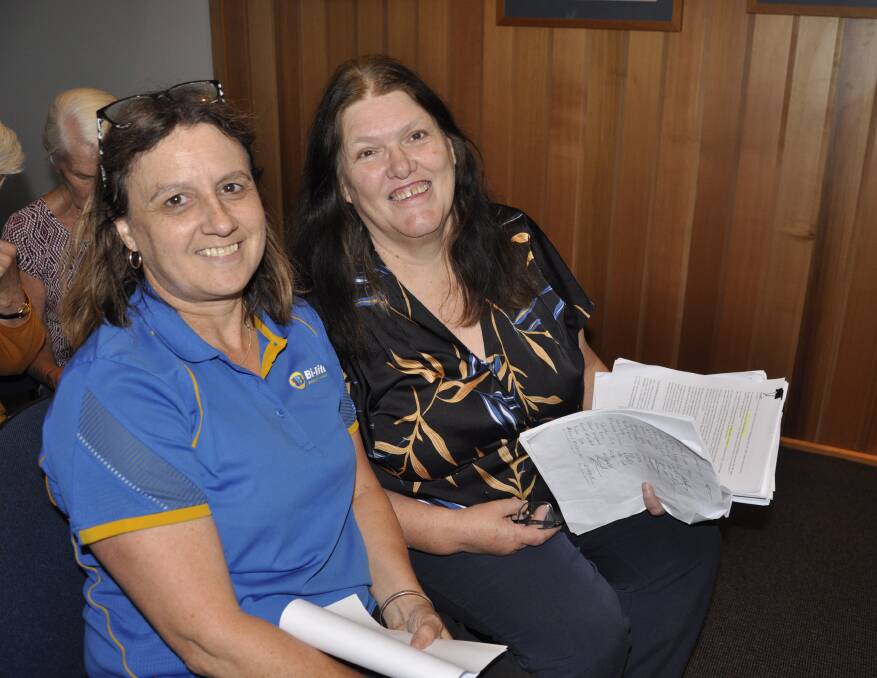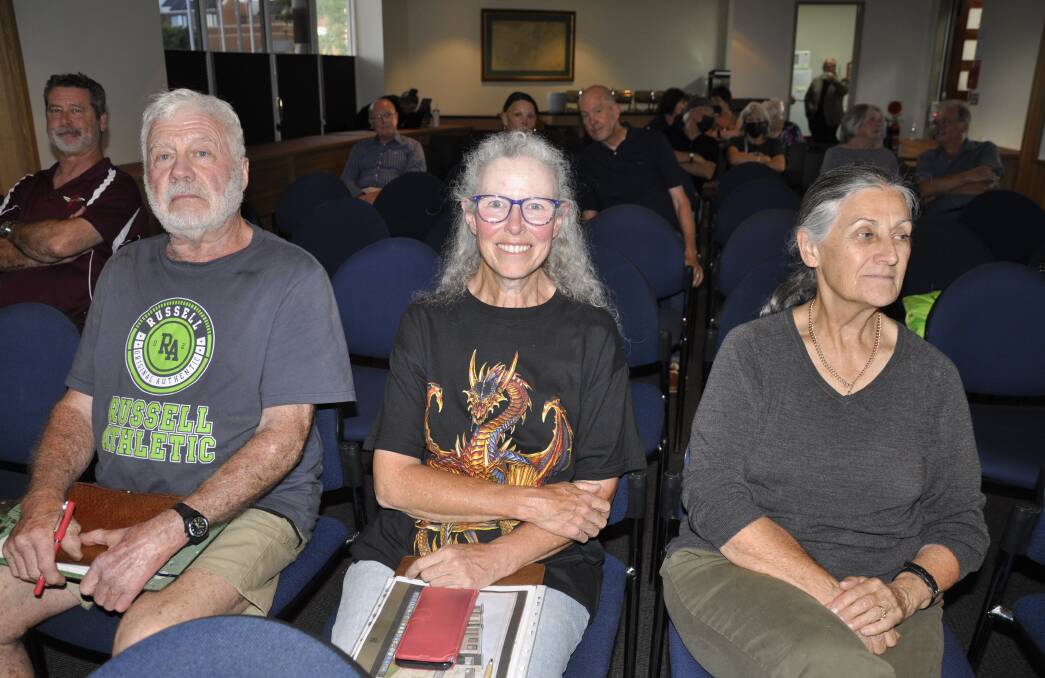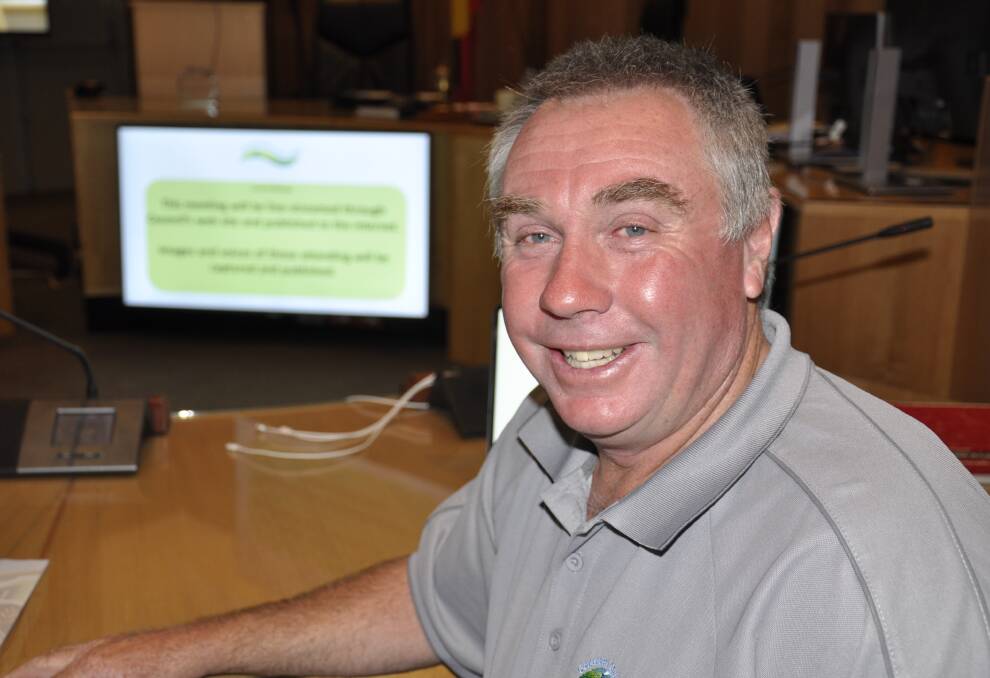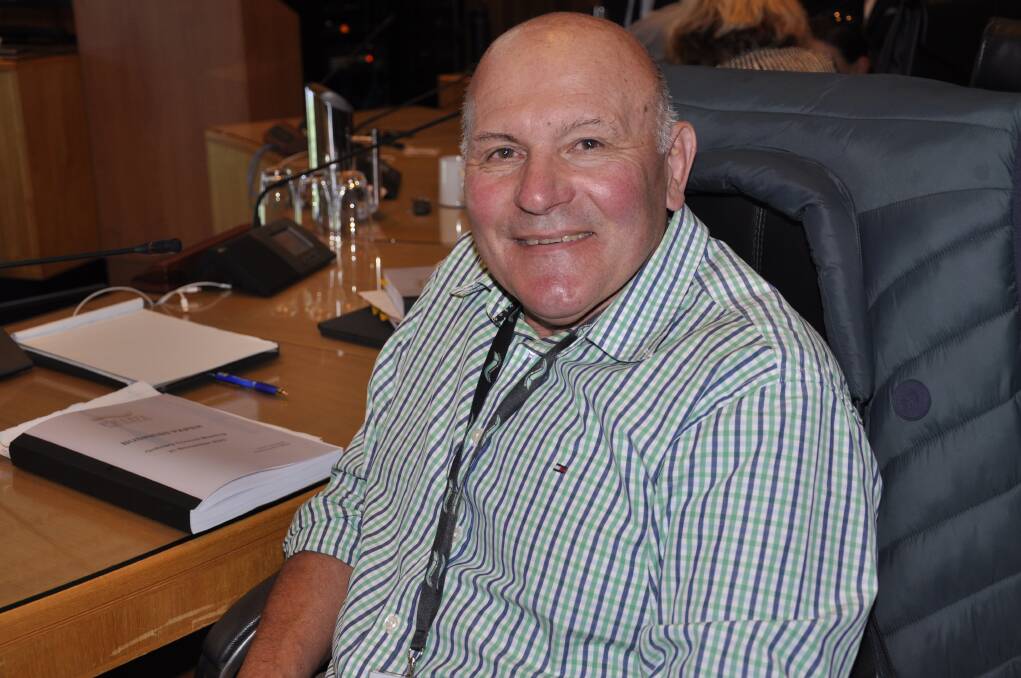
The community will be hit hard by Goulburn Mulwaree Council's decision to apply for a 51.2 per cent rate rise, says an accountant.
Subscribe now for unlimited access.
or signup to continue reading
Nina Dillon was speaking after councillors decided six votes to three on Tuesday, November 21 to apply to the Independent Pricing and Regulatory Tribunal (IPART) for the hike over three years.
"I don't think the community will be very happy, particularly business owners," Ms Dillon said.
"They'll be paying the second highest rate among category four councils (in which Goulburn Mulwaree is grouped)... and I think they'll be disproportionately affected."
READ MORE:
Ms Dillon said there were few winners in the debate and community confidence in the community had been "reduced." She told The Post that councillors had been "overly influenced" by council management.
Mayor Peter Walker, deputy mayor Steve Ruddell and Crs Dan Strickland, Andrew Banfield, Andy Wood and Carol James voted for the rate rise application, while Crs Bob Kirk, Jason Shepherd and Michael Prevedello opposed.
The council will apply to IPART for a permanent rise to be phased in over three years. It would mean:
- A 22.5pc rate rise in 2024/25 (including the rate peg);
- A 16pc increase in 2025/26 (including the rate peg);
- A 6.4pc increase in 2026/27 (rate peg is not applicable).
Mayor Peter Walker told The Post that not everyone would accept the decision.
"Everyone is concerned about it, councillors included because we're ratepayers too, but we've looked at alternatives and discussed it for some time," he said.
"If we don't address it now, we'll find ourselves in a worse position. Across the board, the system is broken."
He was referring to state government cost shifting, IPART's rate peg methodology and removal of several grant programs.
Cr Walker argued Goulburn Mulwaree had been transformed into a vibrant area in the past 10 years but this had to be maintained. In addition, $1.25 million from the increased revenue would be allocated for the Goulburn waste management centre's rehabilitation.

The special rate variation would raise $9m to $10m over the three years.
The mayor disputed Ms Dillon's argument that depreciation accounting had given a false impression of the finances. He said multiple factors were behind the SRV application.
Cr Kirk failed in his motion to defer the rate rise application until 2025/26, investigate additional options to achieve long-term sustainability, and to consult with the community on these. He said he understood and accepted the financial advice given.
"But I believe we owe the community a better understanding of what we're doing. We need to bring them along with us and clearly that's not been the case," he said.
Cr Kirk said the timing was "a huge concern" and many people were struggling.
He argued an IPART review of councils' funding model could yield an outcome. Moreover, the community hadn't been consulted on whether reduced service levels or cuts would be acceptable.
Thunder clapped overhead as the 90-minute councillor debate started. Some 50 people watched from the gallery.
Earlier, they heard from six public forum speakers - Nina Dillon, Chloe Hurley, Leanne Armstrong on behalf of husband, Steve, Kim Gann, Barry McDonald and Sue Arcus - all of whom opposed the rise. All argued the increase was "unaffordable."
"At a time when cost of living has increased to breaking point with fuel costs at record highs, interest rates at five times higher than two years ago, electricity bills skyrocketing, and food prices rising 7.5pc in the last year, we cannot sustain a rate rise of 40 to 51.2pc over the next year," Ms Hurley told councillors.
Ms Dillon questioned the financial figures on which the council was relying. She said that contrary to consultant Morrison Low's report, Goulburn Mulwaree was "very viable" without a rate hike and called on all councils to lobby the state government over cost shifting and a "broken" 'fit for the future' financial sustainability test. More than 70 NSW councils have applied for special rate variations.

But CEO Aaron Johansson backed the accuracy of Morrison Low's figures and said they'd been cross-checked by himself and finance staff. The consultants stated that without intervention, the council would register annual $10.7 million deficits in the general fund for the next 10 years.
In answer to a question from Cr Shepherd about Ms Dillon's viability claims, Mr Johansson said audited financial statements showed $3.9m in unrestricted cash.
"If even one project goes awry, we won't have the money to service it...I know the Morrison Low figures are correct...We wouldn't be here putting up a SRV unless it was absolutely required," Mr Johansson said.
Management undertook modelling on staff impacts if the rate rise didn't proceed. The CEO said this showed 50 positions would have to be cut, affecting 20 additional flow-on positions in other industries and resulting in a $13.8m dent to gross regional productivity.
Several councillors said the decision had weighed heavily on them but they saw no other option.
"There are no winners in this situation; we all have to pay," an emotional Cr Banfield said.
"I have to tell my son and mother they'll have to find more money...but this is about how we look to the tomorrow and set up our kids and grandkids."

Cr Andy Wood said Cr Kirk had given "a nice speech" but argued no funding changes would occur at state level.
"Everyone understands the economic circumstances but what choice is left? If an administrator is appointed, things will be so much worse," he said.
"...If you're relying on Hail Marys from the state government, they're not coming."
But Cr Prevedello said councillors were elected to represent ratepayers' best interests.
"I believe the rate rise is unfair and inequitable. Expecting people to cough up extra money is plainly not fair," he said.
"People say it's unaffordable and I believe them. I can't in all conscience go with this recommendation."
But the majority of councillors voted in favour of the rate rise application.
Mr Johannson said IPART had to be notified by November 25 of the intention to apply for the SRV. The application, due by February, would then be assessed and IPART would undertake its own community consultation. A decision is expected by May, 2024.
Our journalists work hard to provide local, up-to-date news to the community. This is how you can access our trusted content:
- Bookmark our website
- Follow us on Twitter
- Follow us on Google News
- Make sure you are signed up for our breaking news and regular newsletters


